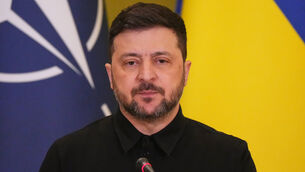Policeman turns suicide bomber and kills ten
A Palestinian police swapped his uniform for a suicide bomber’s outfit today and blew himself up on a crowded bus outside Israeli Prime Minister Ariel Sharon’s residence killing 10 passengers and wounding 50 bystanders.
It was the deadliest attack in four months but did not stop a long planned prisoner exchange between Israel and Lebanese guerrilla group Hezbollah.














